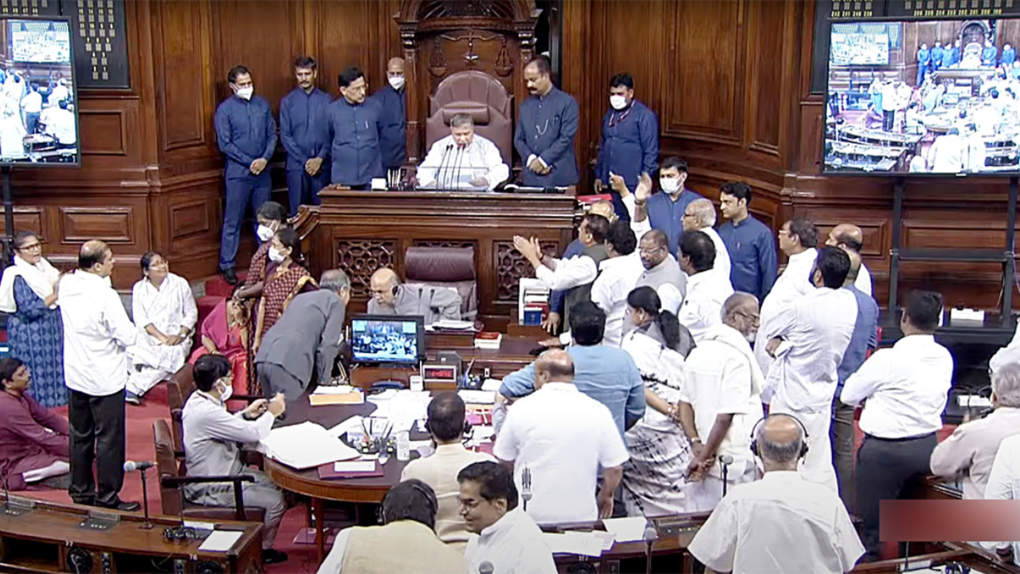
Image Source: timesofindia
In a recent political development, the parliamentary house witnessed a contentious situation leading to the suspension of 14 opposition Members of Parliament (MPs). The incident unfolded during a heated debate on a crucial bill pertaining to [mention the specific bill or topic]. This event has sparked widespread discussions and debates across the country, especially concerning parliamentary conduct and the functioning of democracy.
Background of the Standoff
The root cause of the standoff traces back to the differing opinions and stances adopted by the ruling party and the opposition regarding the aforementioned bill. The divergence in ideologies and approaches between the two sides escalated tensions within the house, resulting in a verbal altercation and disruption of proceedings.
Amidst the chaos, several opposition MPs engaged in vociferous protests, leading to a commotion that disrupted the functioning of the house. The house speaker, citing the disruption as a breach of parliamentary decorum, took the decision to suspend 14 opposition MPs involved in the protest for a stipulated period.
Significance and Implications
Such incidents hold significant implications for the democratic process and the functioning of the parliament. The suspension of MPs raises concerns about the freedom of expression and the right of elected representatives to voice dissenting opinions within the parliamentary framework.
From a UPSC perspective, this incident holds relevance in understanding the dynamics of parliamentary functioning, the role of opposition in a democracy, and the constitutional rights and responsibilities of elected representatives. It underscores the importance of constructive debates and discussions in shaping legislative outcomes while maintaining the decorum and integrity of parliamentary proceedings.
Way Forward
To address such situations, it becomes imperative for all stakeholders involved - the ruling party, the opposition, and the parliamentary authorities - to engage in dialogue and find common ground for the smooth functioning of the house. Upholding the principles of democracy and ensuring the representation of diverse voices should be prioritized, fostering an environment conducive to healthy debates and constructive decision-making.
Furthermore, it highlights the need for robust mechanisms and guidelines that strike a balance between parliamentary discipline and the right to dissent, thereby preserving the sanctity of the democratic process.
Overall, this incident serves as a reminder of the complexities inherent in the functioning of a vibrant democracy and warrants introspection into strengthening the parliamentary system while upholding the core principles of democratic governance.